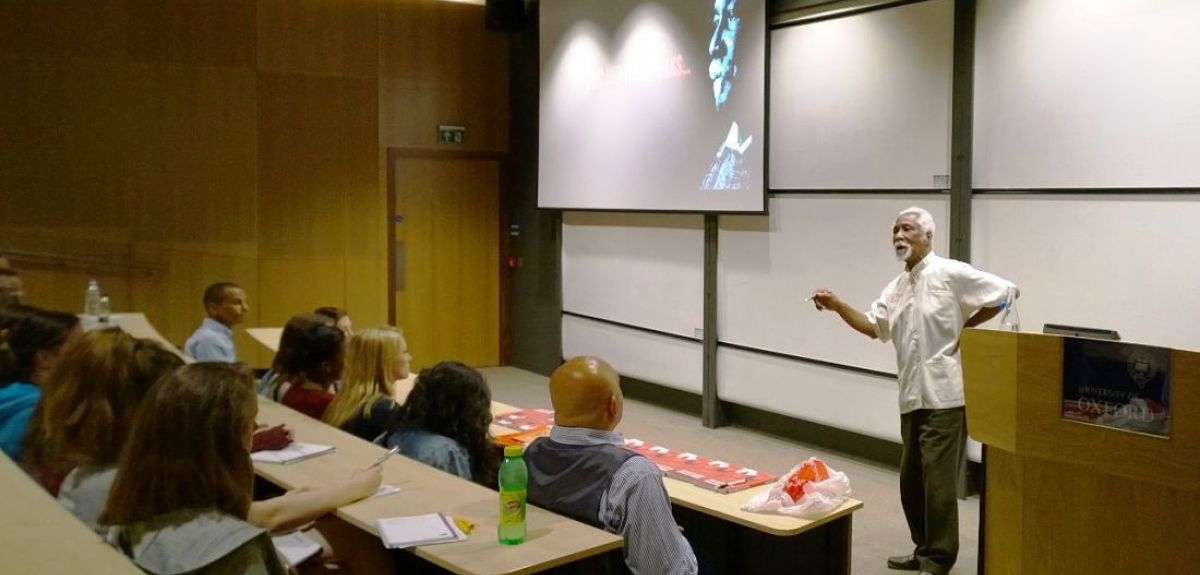
A day in the life of a UNIQ history summer school student
Although the vacation is upon us, Oxford's colleges are still busy with students on the UNIQ summer school. UNIQ aims to give high achieving state school students from socio-economically and educationally disadvantaged backgrounds a taste of what academic life at Oxford is like.
The results of UNIQ graduates are impressive. Of the 544 students who had previously taken part in UNIQ who applied to Oxford in 2013, 237 received offers – a success rate of 43.6% in comparison to 20% for the average applicant. This year more than 1,000 students will take part in the scheme.
This year's History summer schools were hosted by TORCH | The Oxford Research Centre in the Humanities, and students studied 'Race and Protest in Modern America and Britain' and 'Gender, Identity and Change'.
Students taking these courses heard lectures from leading historians and even got the chance to meet British and American civil rights activists and hear about their experiences. Students took part in group discussions and did individual research to produce an essay which was discussed in an Oxford-style tutorial at the end of the week.
Blogs written by students who attended last week’s programme, which have been posted on the TORCH website, indicate why UNIQ has been so successful.
'My essay was a discussion on the benefits of comparing the American and British Civil Rights movements together,' said Martha Homfray-Cooper, a student at Stratton Upper School in Bedfordshire. 'This led me to analysis of primary sources such as newspaper reports, wrestling with historians’ opinions and the construction of a thoughtful argument.'
Martha added: 'The most helpful part of the week was the tutorial discussing the essay. This allowed me to develop my argument, discuss the relevance of sources and dig deeper into the history of civil rights. Also, having access to the Bodleian Library was a privilege and made the research all the more fascinating.
'The highlight of the experience for me was the talk from the activist Eric Huntley,’ said Rachael Beaty, a student at Queen Elizabeth Grammar School in Penrith. 'Before the summer schools, I had never come across the idea of a 'British civil rights movement', so to hear about it first hand from Eric was incredible.
'His perceptive nature towards racism in the late twentieth century was remarkable, to give such a positive light on Britain despite the hardship the country gave him was extremely humbling.'
Students and academics at Oxford who taught on the course were impressed with the students. 'I speak for all the graduate tutors when I say that the students' intelligence, confidence, and passion for History made them a pleasure to have in the discussion groups and tutorials,' said Michael Joseph, a third year History student who was a mentor on the 'Race and Protest' programme.
'Although they won't believe me, one of my favourite parts of the week was marking their essays! I was so impressed by how they had dealt with all the new factual information and the difficult, unfamiliar concepts they had encountered.'
'This year's summer school brought together activists, academics, current students and the UNIQ students to explore, in depth, new ways of thinking about the vitally important subject of the history of race equality and protest,' said Dr Stephen Tuck, director of TORCH.
'We all learnt from each other, and I think, were all excited about the opportunities that studying history and higher education provide.'
The UNIQ website has information for prospective applicants to next year’s programme.